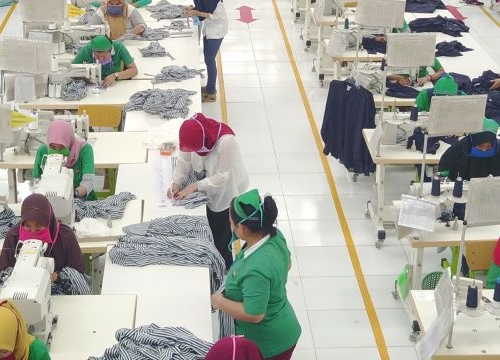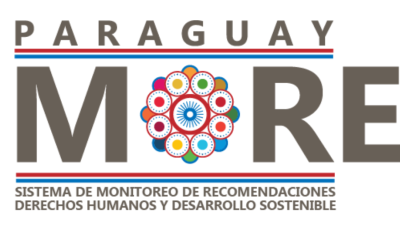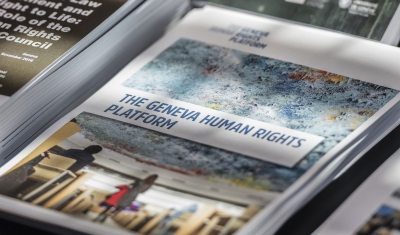Business and Human Rights


Adobe
For many decades, the question of how businesses should address human rights abuses to which they are linked through supply chains, and trade and investment, has been contested. Victims in countries with weak legal systems have often been left without access to remedies when harmed by conduct connected to transnational corporations. In 2011, the United Nations Human Rights Council adopted the United National (UN) Guiding Principles on Business and Human Rights. The Guiding Principles are a set of 31 Principles that clarify the role of the State in protecting persons from human rights abuses connected to business activity. More importantly, the Guiding Principles establish a framework for corporate responsibility to respect human rights, including the provision of access to an effective remedy.
After more than a decade, the UN Guiding Principles have given rise to a variety of developments within the UN systems and in other regional and international organizations, as well as within national jurisdictions, to clarify the expectations for and regulate the conduct of business enterprises with respect to human rights. Within the UN system, human rights treaty bodies, as well as independent experts in special procedures, including the UN Working Group on Business and Human Rights, have set forth authoritative guidance on the concept of corporate responsibility to respect human rights. Many States have developed national action plans on business and human rights. National jurisdictions, as well as the European Union, have created mandatory rules for companies with respect to human rights due diligence, a novel concept set forth in the Guiding Principles. Different court systems and national human rights institutions have also utilized the Guiding Principles in addressing issues of access to remedy for transnational corporate human rights abuses.
Participants in this training course will examine how the UN Guiding Principles have been utilized to advance the concept of business respect for human rights throughout the UN system, including within the UN Human Rights Council, UN human rights treaty bodies, UN Special Procedures, UNCTAD, UNICEF, and the United Nations Development Program. In examining the impact of the Guiding Principles on other international organizations such as the International Labour Organization and the OECD, participants will also explore the impact of standards and guidance developed by these different bodies, and how governments, civil society and businesses interact with different organizations.
We will also examine recent regulatory developments in Europe, the EU, Latin America and Asia to advance business respect for human rights. These developments are the result of the interplay between international and domestic law but also link to cross-cutting global issues such as climate change and climate justice, sustainable development, and international trade and investment. Participants will also examine current debates and critiques of the Guiding Principles. Finally, participants will consider how business and human rights is a relevant fields that can be applied across different areas of human rights policy and practice.
The course will draw on experts from major UN bodies in Geneva and elsewhere, as well as experts from academia, government, business and civil society.
Programme
The course will cover the following issues
- Explain the origins and content of the UN Guiding Principles on Business and Human Rights
- Situate and understand the developments that the UN Guiding Principles have prompted within the UN system, as well as at the regional and national level
- Explore the authoritative guidance provided by the UN system on business and human rights
- Explain the concept of human rights due diligence and its implementation at the international, regional and national level
- Explain the concept of access to remedy and its implementation by court systems and national human rights institutions
- Provide examples of different regulatory regimes emerging in Europe, Latin America and Asia
- Assess current debates and critiques of the UN Guiding Principles.
Objectives
At the end of this course, participants will
- Understand the UN Guiding Principles on Business and Human Rights
- Understand how the UN Guiding Principles have helped in advancing the concept of corporate respect for human rights across the UN system
- Understand the impact of other relevant standards on business and human rights developed by international organisations
- Understand legal developments at the international, regional and national levels to advance business and human rights
- Understand the interlinkages between business and human rights and climate change, climate justice, sustainable development, and international trade and investment
- Be familiar with current debates and critiques of the UN Guiding Principles
- Develop an understanding of how to apply business and human rights instruments in practice.
In Geneva and Online
The course can be followed in Geneva or online.
Access to a Dedicated Community Platform
All participants in our training course have access – ahead, during and following their course – to a dedicated community platform (on Mighty Network). This community brings together all the participants to our courses who have unlimited access to the training materials and resources shared during their course and can exchange with all the alumni of the Geneva Human Rights Platform Training Hub.
Audience
This training course is designed for staff of NGOs, research institutes, UN agencies (especially members with experience in fieldwork) and other national and international organisations, members of NHRIs, business enterprises and representatives of governments and academia.
The language of instruction during the training is English. All candidates must possess a level of proficiency in English that enables them to actively participate in the training.
Certification
Participants who successfully complete the training course receive a certificate of participation from the Geneva Academy.
Fee
Attendance in Geneva
The training fee for this five-day programme is 1,830 Swiss Francs and includes tuition costs, course materials, 5 lunches, and refreshments during coffee breaks.
All participants are responsible for their own travel costs to Geneva, including Swiss visa fees and evening meals (approximately 30 Swiss Francs per meal).
Discount for Online Attendance*
The training fee for those attending the course online is 1,550 Swiss Francs.
Discount for PhD and Master Students*
There is a 30 percent discount for PhD and master students.
Payment
The fee is payable as soon as your place has been confirmed. As places on the training course are limited, participation can only be secured through the payment of the fee. In case of cancellation by the participant, CHF 200 won't be returned.
* These two discounts cannot be combined.
How to Apply
Please apply here.
Admission decisions for our training courses are made by our experienced lead trainers. They carefully evaluate each application and may offer acceptance, conditional acceptance, placement on a waiting list, or, in some cases, may need to decline the application.
If you have questions, do not hesitate to contact us: traininghub[at]geneva-academy.ch














